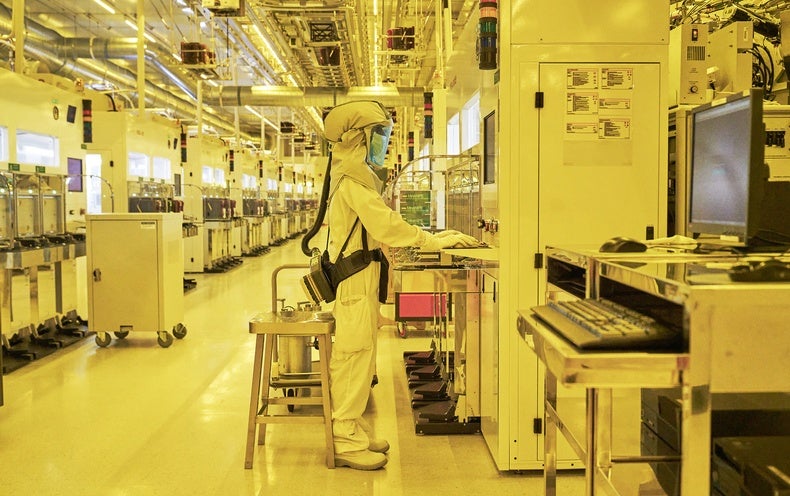The shortage of automotive chips has led to global production cuts, just as many automakers are preparing to expand their electric vehicle fleets.
The shortage is the result of supply chain constraints and other factors related to the pandemic. Experts say that if chips remain scarce in the coming months, this may prolong the world’s slow transition to electric vehicles.
“If we continue to have a shortage of chips for a long time, it means that those [electric] Sam Abuelsamid, an analyst at Guidehouse Insights, a market research firm, said: “Vehicles cannot be manufactured or sold, and we still have more old cars on the road for longer periods of time. So this is definitely a problem.”
This will delay the decarbonization of the emissions-intensive transportation sector, which most scientists believe is necessary to avoid the most serious effects of climate change.
The transportation sector accounted for 29% of the approximately 6.6 billion metric tons of carbon dioxide equivalent emissions generated in the United States in 2019. EPA dataPersonal vehicles—cars, pickup trucks, SUVs, and minivans—generate more than half of the industry’s emissions.
The Biden administration is working hard to reduce emissions from personal vehicles. Electric vehicles accounted for 2% of US car sales last year and are at the core of the plan.
The chip shortage is a key issue faced by Vice President Kamala Harris during his visit to Singapore. The US-based manufacturer GlobalFoundries is building a chip manufacturing plant in Singapore.
She said at a press conference with Prime Minister Lee Hsien Loong today: “If we cannot produce enough semiconductors as a world, as a world, our car factories in the United States will be affected as before.” “You just have to ask anything. People who are considering trying to buy a new or used car, this is more difficult than it has been for a long time, because of course, supply chain issues will affect the production line and affect the entry of goods into the market.”
President Biden recently issued an executive order requiring that half of the new cars sold by 2030 be electric vehicles or plug-in hybrid vehicles. He also announced the draft fuel efficiency rules, requiring new internal combustion engine vehicles to reduce emissions.
But experts doubt whether the government’s rules are sufficient to achieve Biden’s 50% electric vehicle goal set at the end of this decade, especially when chip shortages complicate an already ambitious timetable (Climate line, August 6).
Michelle Krebs, an analyst at Cox Automotive, a car dealer group, said: “Electric vehicles still account for only a small part of the market, and they will become a small part of the market in the next few years. “
The chip shortage has begun to delay the production of some popular electric cars. Earlier this month, Ford Motor Company. Tell Customers who placed orders for Mach-E Mustangs stated that “the global shortage of semiconductor chips is affecting our ability to keep up with demand.” Therefore, the company stated that the delivery of electric sports cars will be delayed by at least six weeks.
Ford and electric car proponents are more concerned about the fate of the F-150 Lightning, which is the electric version of its best-selling pickup truck (Energy line, May 21).
Since Lightning is not yet in full production, “it has not been affected yet,” Abuelsamid said. “Depending on how long this situation lasts, yes, it is likely to be affected.”
This is the problem: no one knows how long the chip shortage will last.
It started when the pandemic caused a surge in demand for chip-intensive personal computers and game consoles. This puts automakers that rely on the same chip manufacturing company to produce silicon chips behind.
At the same time, due to warehouse fires, droughts and other incidents at key chip manufacturing facilities, this production line has become longer.
“The situation is very unstable,” Krebs said. “We think it will ease now, and the situation seems to be equally bad in the next few months, and it may get worse. We are trying to figure out when it will bottom out, but I just don’t have the answer to that.”
forward from Electronics News With permission from POLITICO, LLC. Copyright 2021. E&E News provides important news for energy and environmental professionals.
